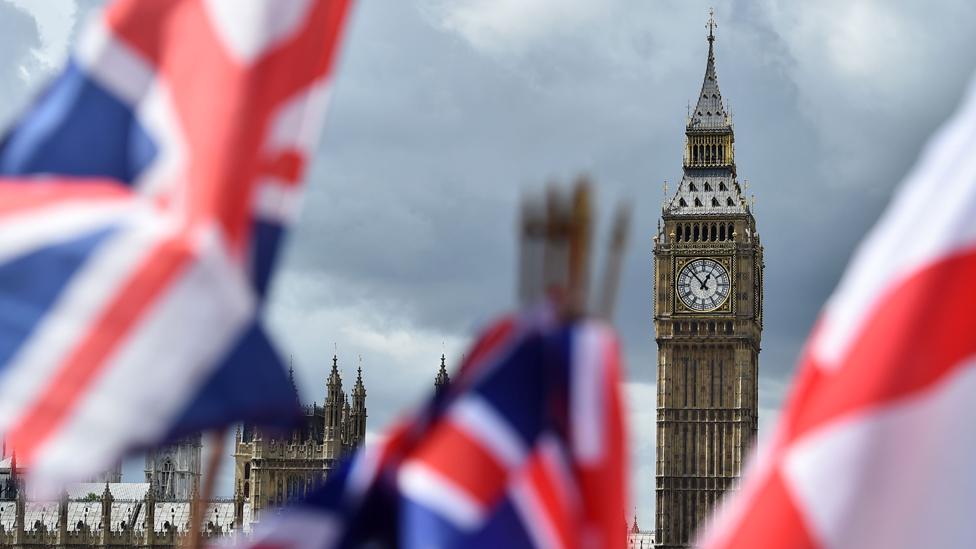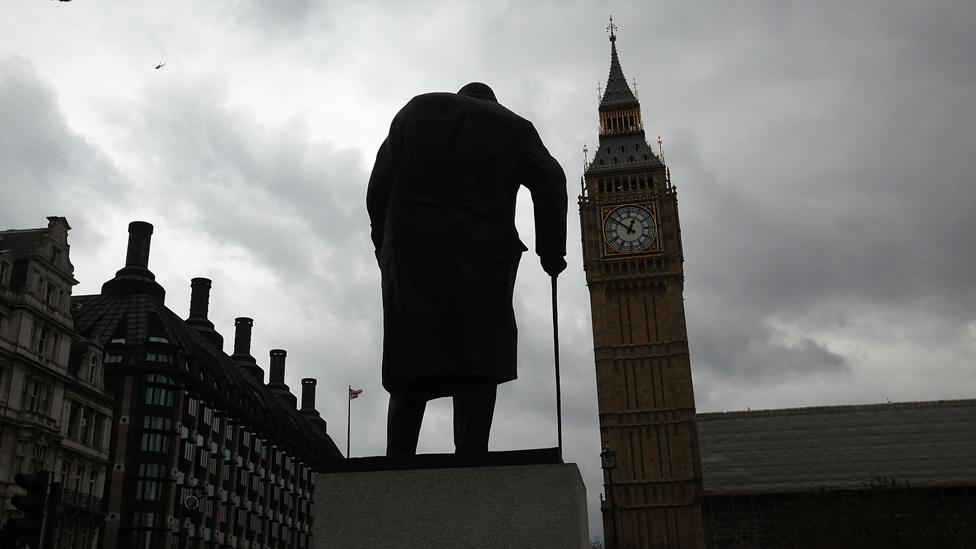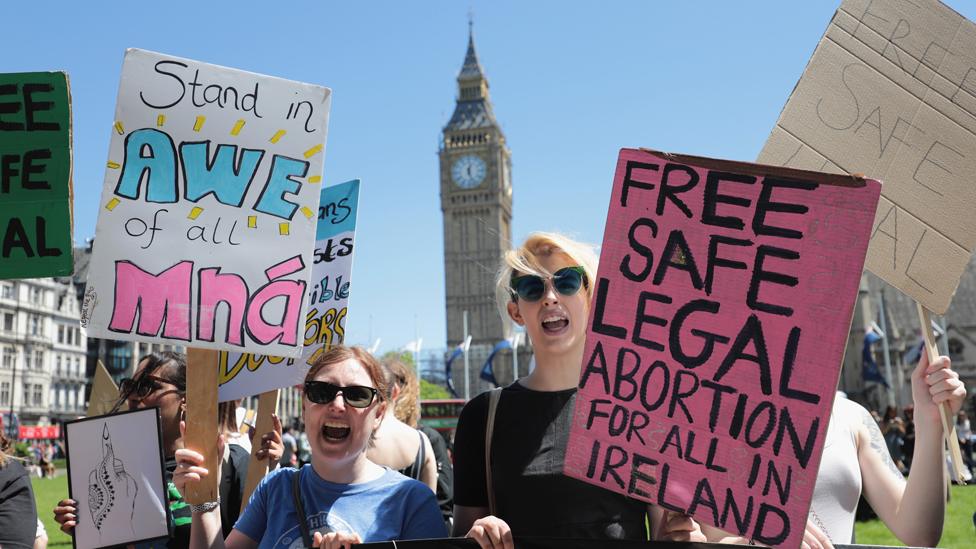Has British democracy let its people down?
- Published
- comments

Parliamentary democracy is one of the British values that English schools are now required, by statute, to promote during lessons - not debate, not discuss, promote.
If some teachers interpret their new role as propagandists for this kingdom's existing system of governance, that would be a shame, because right now there are questions about how well our form of democracy is serving the UK.
Far from providing the stability and legitimacy it promises, one could argue that our democratic system has served to expose and deepen social divides.
Some would say it has even contrived to leave our country vulnerable at a critical moment in its history.
Rather than seeking to close down critical challenge of our form of democracy, do we need a serious and urgent conversation about how we can improve matters?
Yes, turnout was the highest since 1997, and there are clear signs that young people may have participated in larger numbers than in previous elections.
These must be encouraging signs for the democratic process.
But almost a third of the electorate still didn't bother to exercise their democratic right.
And for nine out of 10 of those that did last week, the victorious party in their constituency didn't change.
In many seats, that has been the case for decades.

Churchill: "No-one pretends that democracy is perfect or all-wise"
The overall result may have been unexpected and even "extraordinary", but for the vast majority of voters, the local outcome could be construed as suggesting people were quite happy with the status quo.
"No-one pretends that democracy is perfect or all-wise," Winston Churchill told the House of Commons in 1947.
"Indeed, it has been said that democracy is the worst form of government, except all those other forms that have been tried from time to time."
Most people would probably agree with that, and David Cameron was surely right to argue that democracy is a keystone in the curtain wall that defines our nation's character, a feature of British life that must be defended.
But a democracy's strength is not measured only in its ability to withstand external attack. It must be loved and cherished by those within.

Talk to people the length and breadth of the United Kingdom, and you will hear the argument that the system ignores ordinary people, that their voice is not being heard by the distant elites.
Democracy, they say, is failing them.
At a time in world history when power is shifting further away from the ordinary citizen to international institutions and global corporations, this sense of democratic deficit is felt even more keenly.
National and local democratic structures need to be more responsive, but in Britain people feel they are increasingly remote.
This snap election may have done little to restore people's faith in the democratic process.
If people felt their voice was irrelevant before, will they think the system is any better now?
Our two main political parties were founded and evolved to deal with the social and economic challenges of the industrial revolution.
Conservative and Labour, left and right, capitalism and socialism - these ideological movements were a response to the economic and cultural challenges of power moving from the field to the factory.
But power is moving again, from the national to the multinational.
How citizens think we should respond to that shift is the new divide in our politics.
It is less about left v right and more about nationalism v globalism.
The 9.5% increase in the vote share for Jeremy Corbyn's Labour party and the 6% increase in Theresa May's Conservative support might be held up as evidence that the British electorate is once again becoming more "tribal" in left-right terms.
But old-fashioned political tribalism is actually on the wane.
If some voters feel frustration with the limitations of our first-past-the-post electoral system, they are striving to get their voice heard as best they can.
On the cost of living, on trade, on public services, on climate change, on our future prosperity - we are living in uncertain times.
Smaller parties that face no realistic chance of power, however attractive, get squeezed out at such moments.
Protest votes can seem like a luxury.

Voters are striving to get their voice heard as best they can
You will hear commentators suggesting that the result of this election sends a clear message to our political leaders.
But it's hard to argue that the final electoral arithmetic gives effect to some silent national consensus on what Britain wants.
A weakened government exclusively wooing one small party's MPs, politicians that 99.4% of the public didn't vote for - does this really reflect the "will of the people"?
So what is the will of the people?
Analysing what happened last Thursday reveals all kinds of contradictory and opaque views within the voting patterns.
There are deep divides between young and old, town and country, north and south, rich and poor.
There was no definable message from the electorate last Thursday.
A British general election is a very blunt democratic tool.
The nuanced opinions that the country and, indeed, every voter holds are impossible to explain from a simple "X" in a single box.
And the diminution of local government in England, the weakening of the trade union movement, the impotence of political protest movements, the increasing centralisation of overarching authority to one house in Downing Street - these add to the sense that the "demos" (people) are increasingly excluded from the "kratos" (power).
The defining feature of our democracy, this cornerstone of British values, is that citizens have a participatory role in political and civic life. The people have a voice.
Some would argue that the debate we must have now is how to convince the populace that the United Kingdom does have a democracy that allows that voice to be listened to, understood and acted upon.
Update 26 June 2017: This article has been changed to clarify some of the points made by Mark Easton.
Sorry, your browser cannot display this content.